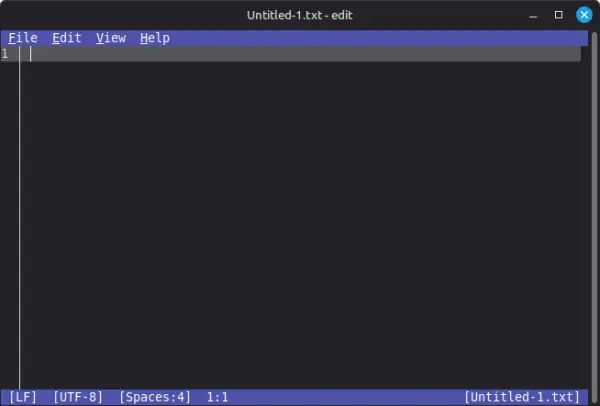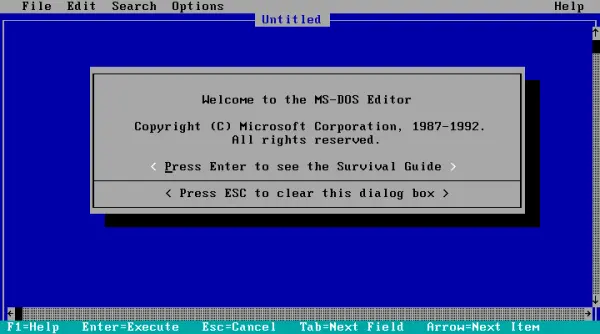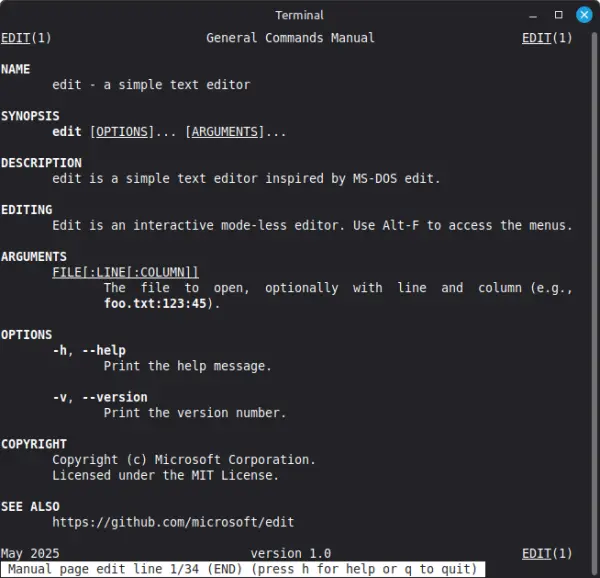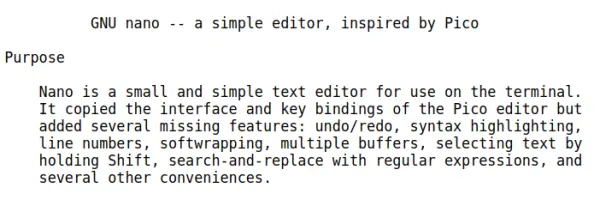
I’ve been seeing a few posts / videos claiming that Microsoft Edit is better than GNU Nano. Sorry, it isn’t. Furthermore, it hasn’t been designed to be better than anything!
Microsoft explained why they created Edit on their Devblog:
What motivated us to build Edit was the need for a default CLI text editor in 64-bit versions of Windows. 32-bit versions of Windows ship with the MS-DOS editor , but 64-bit versions do not have a CLI editor installed inbox. From there, we narrowed down our options…
Many of you are probably familiar with the “How do I exit vim?” meme. While it is relatively simple to learn the magic exit incantation, it’s certainly not a coincidence that this often turns up as a stumbling block for new and old programmers.
Because we wanted to avoid this for a built-in default editor, we decided that we wanted a modeless editor for Windows (versus a modal editor where new users would have to remember different modes of operation and how to switch between them).
This unfortunately limited our choices to a list of editors that either had no first-party support for Windows or were too big to bundle them with every version of the OS. As a result, Edit was born.
It should be noted that this new, Rust written Edit, is a modern version of an old DOS program of the same name. Here’s what that looked like:

Edit is designed for very simple editing. Below is the entire man page:

Nice and clear, and the program is learnable in approximately 5 minutes. In contrast, you’ll probably need a couple of hours to fully learn and become productive with GNU Nano. They have different histories and purposes. Here is the first paragraph from the Nano README:

Nano began life as a clone of Pico1, then added features that users wished Pico had, whilst retaining its simple, easy to use nature. Edit is a re-implementation of DOS edit.com. The stated goal of Edit is
…to provide an accessible editor that even users largely unfamiliar with terminals can easily use.
You can type characters, delete them, search and replace, and that’s about it. Which is fine. Remember, this will ship with Windows. Now I haven’t used Windows at home since, maybe, 2006. MS Edit is not targeted at me, or anyone other than their customers. It’s there because they should have a terminal text editor. It’s not fancy or powerful but it will allow their customers to edit text files from the command line in a stress free way.
Personally, I like what they’ve done. There’s no configuration and no options to muck about with. You fire it up and do what you need to do.
Conclusion
I think Edit is a great bit of software. I like that Microsoft have released it as open source, and that they release Linux builds. I’ve had a play with it and haven’t felt the need to delete it. To my mind, it has already achieved it’s stated goal. There’s not really anything else that it needs at this point. I’m sure Microsoft are fully aware that if they start adding new features, it becomes harder to learn, harder to use. GNU Nano doesn’t have that contraint. It wants to be simple, but also useful.
Microsoft Edit is good but GNU Nano is better and always will be.
See Also
Why I use GNU Nano as my Default Editor
Footnotes
1 Pico (pi)ne (co)mposer was the editor for the PINE email program. Very popular in the 90’s and kept alive in the fork Alpine which I use on my servers.